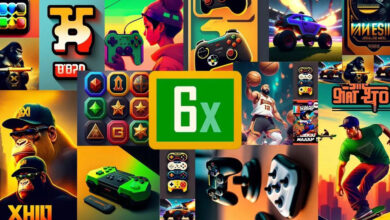Exploring the Popularity of Classic Card Games in the Digital Era

The resurgence of classic card games in the digital landscape is a testament to their enduring appeal and adaptability. While once the preserve of kitchen tables and smoky parlors, games like Solitaire have found new life on the screens of computers and smartphones. Platforms such as Solitaire games facilitate access for nostalgic enthusiasts and a new generation intrigued by strategic and leisurely play. The digital age has democratized these games, stripping away barriers to entry and making them accessible to a wide audience with varying interests and skill levels.
The Psychology Behind the Appeal of Card Games
There is a subtle yet profound reason why card games continue to captivate our attention. Engaging in activities like Solitaire is linked to cognitive development and mental acuity. According to insights from Harvard Health Publishing, such mentally stimulating games can strengthen cognitive skills and potentially delay memory decline. This intellectual stimulation is an intrinsic value that card games offer, making them more than mere pastimes—they are exercises for the brain.
The psychological benefits don’t stop with mental agility. Deep within the mechanics of card games lies the profound potential for stress relief and relaxation. Card sorting, the central activity of games like Solitaire, can become a meditative practice, a respite from the overstimulation that typifies modern life. These games’ structured yet flexible nature provides a comforting sense of order and progress. Whether during a lunch break or at home unwinding, a quick card game can serve as a peaceful anchor in a turbulent sea of daily demands.
Comparing Traditional and Digital Gameplay
In the transition from physical decks to digital displays, the essence of card games remains intact, but the experience is disparate. Traditionalists might argue that the tangible experience of shuffling and dealing cards contributes to the enjoyment of card games. It adds an element of craft and physicality that is undeniably engaging. However, the digital format trumps the traditional in terms of sheer practicality. Accessibility is the linchpin of the digital card game’s attraction. With the proliferation of smartphones and constant internet access, anyone can indulge in a quick game of Solitaire with no setup or cleanup required.
These contrasting experiences cater to different preferences but converge on a crucial point: both seek to provide enjoyable and engaging entertainment. The digital version, in particular, suits the contemporary lifestyle, integrating seamlessly into the hectic routines of modern-day individuals.
Social Aspects of Online Card Gaming Communities
As card games transitioned online, one might have expected an erosion of the social element that characterized their physical counterparts. Yet, the reality is that digital platforms have facilitated the formation of global communities bonded over shared interests in these timeless games. According to recent research, these online communities provide a social framework for engagement and educational opportunities where players can learn from one another. They celebrate the collective joy of victory and the shared commiseration of a close loss.
Incorporating social features such as chat functions, multiplayer modes, and online tournaments gives these digital forms of classic card games a new dimension. No longer a solitary pursuit, digital Solitaire and other card games can foster friendships and rivalries across the globe. Players converge digitally, regardless of geographic boundaries, transforming card games into social experiences that both echo and extend the communal aspects of their traditional forms.
The Evolution of Classic Card Games Online
The digital environment has enabled classic card games to evolve beyond their traditional limitations. Through thoughtful game design and a focus on user experience, developers have introduced variations and features that accentuate the essence of these games while introducing new challenges. Graphical enhancements, themed backdrops, and interactive tutorials are just a few examples of how the classics have been reimagined for a modern audience.
This evolution has not stripped these games of their core principles. Instead, it has translated them into a new, ever-present, ever-responsive medium. By maintaining the strategic depth and inherent challenge that gave these games their longevity while streamlining the experience to suit a faster-paced world, the evolution of card games online is a textbook example of traditional entertainment adapting to contemporary demands.
Innovation in Digital Card Games
Digital card games have leveraged the potential of modern technology to introduce new dimensions to gameplay. Clever innovations such as in-game achievements, quests, and challenges provide a sense of progression and accomplishment. These features enrich the gaming experience and create a compelling digital ecosystem around what were once considered simple games. These incentives encourage players to set personal goals and return to the platform, deepening their engagement and creating a more sticky experience.
New game modes and variations on classic rules offer fresh gameplay experiences while honoring the vintage allure of card games. Whether it’s speed rounds, competitive leaderboards, or daily challenges, these innovations keep the games fresh, ensuring the player’s journey is punctuated with variety and surprise. The reinvention of classic card games for the digital space fosters a continual rediscovery of old favorites, appealing to nostalgic fans and curious newcomers alike.
How Online Platforms Reinvigorate Interest in Card Games
Online platforms have played a monumental role in renewing interest in classic card games. They facilitate the transition of these beloved pastimes into the consciousness of a wider audience. Case studies peppered through the gaming industry showcase how platforms have reignited a passion for card games, making them relevant again. Globally accessible online tournaments and shared leaderboards introduce a competitive edge that drives gamers to hone their skills and achieve mastery.
Moreover, these platforms have also broken down geographical barriers, bringing together diverse cultures in the shared language of gameplay. This worldwide stage has extended the reach of classic card games and contributed to their cultural enrichment, as players worldwide contribute to a melting pot of strategies and playstyles.
The Future of Digital Card Gaming
Looking toward the horizon, the future of digital card gaming is brimming with possibilities. Advancements in virtual and augmented reality technologies can radically transform these games, bringing a level of immersion that transcends the flat planes of screens and monitors. Integrating sensory experiences and three-dimensional interactions could redefine how we engage with digital card games, offering a taste of the physical world within a digital playground.
Another exciting frontier is the continued growth and integration of mobile gaming, further enhancing accessibility and making it easier for people to play on the go. As technology evolves and player expectations rise, the digital card game industry is poised for continued innovation and growth, preserving the cherished traditions of classic card games while charting a course for an innovative future.
Final Thoughts
In conclusion, the digital era has ushered in a golden age for classic card games. By harnessing the connective power of the internet, the timelessness of strategy, and the universal appeal of friendly competition, digital platforms ensure that these venerable games remain relevant and beloved. The simplicity of access, combined with the depth of experience and the community around them, guarantees that classic card games will continue to be a cherished part of our cultural heritage and digital future.



